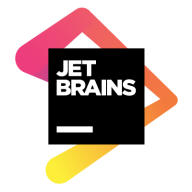

Jenkins and TeamCity are leading tools in the continuous integration and delivery category, competing to provide enhanced automation solutions. Jenkins has an advantage due to its free open-source model and strong community support, while TeamCity offers a more user-friendly interface and robust integration features.
Features: Jenkins is renowned for its extensive open-source community and a wide variety of plugins that provide flexibility. It is particularly favorable for its Pipeline plugin enabling complex automation. In contrast, TeamCity is praised for its ease in creating build pipelines, robust integration features, and effective visualization of builds.
Room for Improvement: Jenkins users frequently mention the need for a more modern user interface, better error feedback, and enhanced integration features. TeamCity users highlight the need for improved documentation, a better UI, and increased capabilities for version control system integration.
Ease of Deployment and Customer Service: Jenkins offers flexible deployment options across on-premises, hybrid cloud, and public cloud setups, thanks to strong community support, though it lacks official support. TeamCity is similarly adaptable but faces challenges with on-premises deployment. Users recognize the value of its community and documentation in lieu of direct support.
Pricing and ROI: Jenkins is cost-effective due to its free open-source version, which lowers operational expenses despite configuration costs. In contrast, TeamCity provides a free tier with limited capabilities, requiring a paid license for comprehensive features. Although considered expensive, its price is deemed justified due to its stability and support.


Jenkins is an award-winning application that monitors executions of repeated jobs, such as building a software project or jobs run by cron.
TeamCity is a Continuous Integration and Deployment server that provides out-of-the-box continuous unit testing, code quality analysis, and early reporting on build problems. A simple installation process lets you deploy TeamCity and start improving your release management practices in a matter of minutes. TeamCity supports Java, .NET and Ruby development and integrates perfectly with major IDEs, version control systems, and issue tracking systems.
We monitor all Build Automation reviews to prevent fraudulent reviews and keep review quality high. We do not post reviews by company employees or direct competitors. We validate each review for authenticity via cross-reference with LinkedIn, and personal follow-up with the reviewer when necessary.